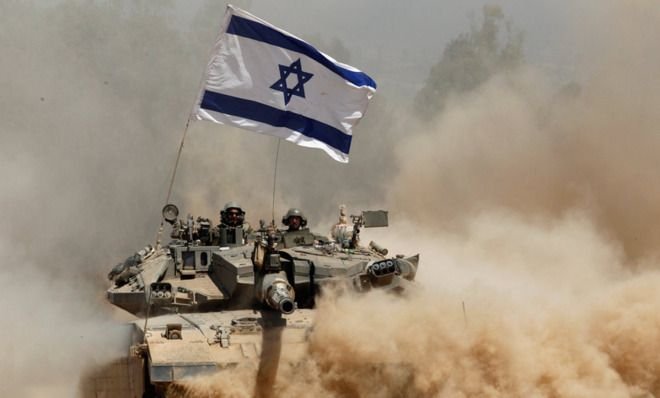Israel’s economy is scuffling with a substantial setback as the conflict with Gaza prolongs, with recent reports indicating a staggering 5% decline in GDP. The ongoing conflict, now spanning 137 days, has inflicted severe blows to both Gaza’s and Israel’s economic landscapes.
The latest GDP figures, unveiling a 5% contraction in the last quarter (October to December), depict a bleaker picture than anticipated, significantly overshadowing earlier projections of a 2.6% downturn. The primary culprit behind this economic downturn can be shortly summarized in a single word: war.
Before the eruption of hostilities, Israel had been experiencing relative economic stability. In 2022, its GDP witnessed a commendable 6.5% growth, marking a robust rebound from the pandemic-induced slump. However, the scenario took a dramatic turn following the Hamas attack on October 7th, prompting Israel’s military response and subsequent warfare in Gaza.
The repercussions of this conflict reverberated across various economic sectors. Private spending plummeted by over 26%, exports saw an 18% decline, and capital investments nosedived by almost 68%, encapsulating what can be termed the “war effect.” Among the hardest-hit sectors were construction and technology, comprising 14% and 18% of Israel’s GDP, respectively. Both industries grappled with manpower shortages due to the mobilization of some 300,000 reserve soldiers, amounting to a significant portion of the workforce.

Moreover, the cessation of Palestinian labor influx further exacerbated the economic strain, particularly in construction, where numerous projects came to a halt. The financial toll extended to housing subsidies and support for affected families, further accentuating the economic downturn.
Contrastingly, amidst similar conflicts, Russia’s economy demonstrated resilience, recording a 5.5% GDP growth in the same quarter. The divergence underscores Israel’s vulnerability owing to its smaller population size and lack of abundant natural resources like oil and gas.
However, there are glimmers of hope on the horizon. As the ground operations are near conclusion, the return of reservists to their civilian roles is anticipated, offering a potential boost to economic activity. Additionally, the commitment of certain corporations, exemplified by Intel’s substantial investment in Israel, signals confidence in the nation’s recovery trajectory.
Nevertheless, the adversity faced underscores the imperative for Israeli policymakers to reassess their approach toward conflict resolution, recognizing the detrimental impact of prolonged warfare on the nation’s economic well-being.
Read More:- More Sanctions Against Russia: A Complex Landscape
While the road to recovery may be arduous, it remains imperative for Israel to navigate these challenges prudently, fostering stability and prosperity for its populace.
Fan of Anime? Head on to Pop Media Pulse
